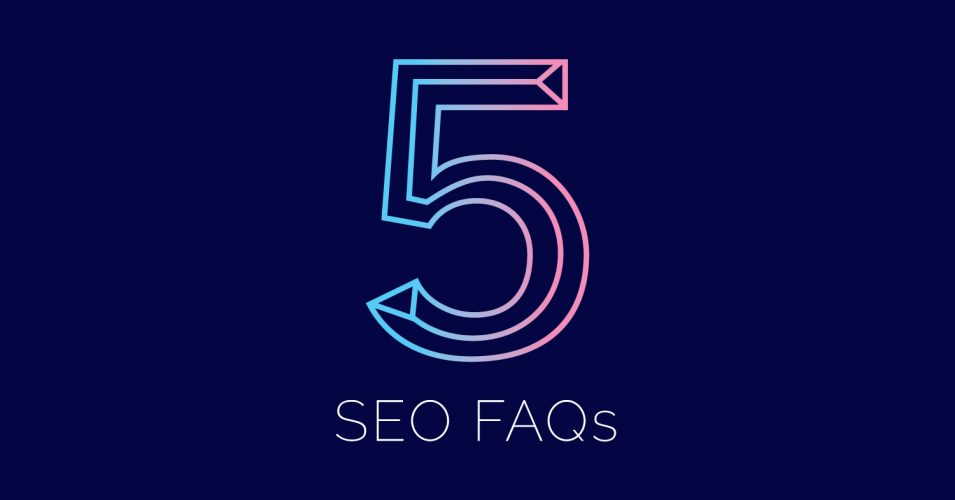Search Engine Optimization, or SEO, is an essential strategy to grow just about any online business in today’s marketplace. However, those who are new to SEO (or skeptics of it) may have many unanswered questions about this crucial digital marketing strategy. Here are five common questions that people ask about SEO, and their corresponding answers:
Question #1: How Long Do I Have to Wait to See SEO Results?
The fact of the matter is, SEO is not some quick, short-term fix. Rather, it should be viewed as a long-term investment that will help your business to thrive months and years down the line.
Some companies may begin to see measurable results from their SEO initiatives in as little as six weeks, whereas others may have to wait anywhere from six to nine months to start seeing movement. The time frame depends on several factors, such as the narrowness of your brand’s niche, and the level of competition with the keywords and phrases you’re using.
Question #2: Why Should I Continue SEO Once I’ve Obtained Good Rankings?
For the same reason a professional bodybuilder continues to work out after he’s achieved a sculpted body, or a musician continues to practice after he’s mastered his instrument: if you don’t use it, you lose it. SEO is an ongoing process. Google’s ranking algorithm is constantly changing, and competing companies are constantly seeking an edge over their peers. For these and other reasons, you need to stay on top of your SEO game even after you’ve climbed to the top of the rankings.
Question #3: Should I Start SEO Before or After My Website is Built?
Even before your website is up and running, it’s a good idea to at least have a clear SEO strategy in place, if not a few ready-made articles in hand. Of course, your SEO tactics will have their maximum impact when you can leverage your company website as the central hub of your Digital Marketing strategy.
Question #4: Why Do My Rankings Fluctuate?
A measure of fluctuation should be expected: as mentioned above, Google developers are always tweaking the SERP algorithm, and keyword positions may jump up or down a couple of spots from week to week. That being said, if your target keywords are experiencing massive fluctuations on a regular basis, then it’s time to dive into the details and address the underlying issue.
Question #5: What are SEO Tags?
SEO tags help Google to correctly identify the nature of your content and provide an “SEO-friendly” structure to your blogs and articles. For example, a title tag helps Google to determine the relevance of a blog post in relation to a specific search phrase. Meta tags provide a helpful description for a web page. Subheading tags may improve your SEO scores by boosting your website’s “readability” ranking.
SEO has many moving parts, and companies have to constantly monitor their SEO practices to spot weaknesses and seize opportunities for a higher ranking. The assistance of a professional digital marketing agency, like Zero Gravity Marketing, can be an invaluable resource to boost SEO scores and contribute to sustainable business growth. If you have SEO questions that have gone unanswered for too long, reach out to our team today!






